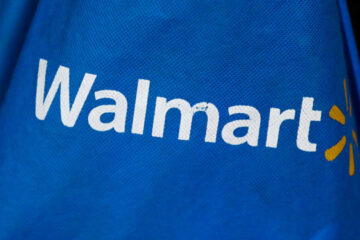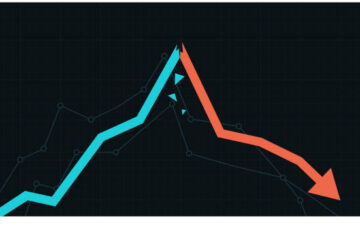Nice doggie.
An image of a dog posted on social media on June 27 set shares of online pet product company Chewy (CHWY) running wild for a short time.
Meme stock maven Keith Gill, also known as “Roaring Kitty,” posted the dog picture on X, formerly on his Twitter feed, and sparked a rabid reaction.
Related: Keith Gill’s net worth: How much did the “Dumb Money” investor make on GameStop?
Chewy’s stock soared as much as 34% to $39.10 before returning to the kennel with its tail between its legs. Shares fell 10% to $26.25 on June 28.
PetCo’s (WOOF) stock price also increased and has remained there, jumping 13% to $3.78.
“Someone on X or in some chatroom may declare they knew the rally was coming, and they played it like a violin,” TheStreet Pro’s Bruce Kamich said in his June 28 column. “I don’t believe it for one second.”
“Traders who are long CHWY based on my earlier recommendations should take their profits and walk away,” he added. “I would leave the possibility of instant profits to someone else.”
Chewy stock soared briefly this week after a share repurchase deal was announced.
Shutterstock
Chewy CEO cites cash flow generation
Gill, who returned to social media last month after going dark for three years, is the father of the 2021 meme stock frenzy.
His analyses of GameStop stock and details of his resulting investment gains were cited as a driving factor in the GameStop short squeeze as investors bought up shares of the video game retailer and other meme stocks, such as AMC (AMC) , BlackBerry (BB) and Nokia (NOK) .
Several hedge funds and some institutional investors went through some significant financial difficulty, while many retail investors saw significant gains.
Related: Analyst reboots GameStop stock price target after share sale
The meme stock frenzy was the subject of last year’s film Dumb Money, which starred Paul Dano as Gill.
The real Gill returned to the public eye on June 7th and reiterated his GameStop thesis and his large position in the stock in a live stream.
Chewy was founded by GameStop CEO Ryan Cohen, who was instrumental in PetSmart’s takeover of Chewy in 2017.
Cohen joined the GameStop board along with two Chewy executives in January 2021 and became chief executive in 2023.
Last month, Chewy beat Wall Street’s first-quarter earnings expectations, posting first-quarter revenue of $2.88 billion, up 3.1% from a year, while earnings per share came in at 15 cents, up 10 cents from a year ago.
“We kicked off the year with strong performance, achieving solid top-line results, record-breaking profitability, and robust free cash flow,” CEO Sumit Singh told analysts during the company’s earnings call.
Singh told analysts that from both a profitability and cash generation perspective, “we believe that we have reached an exciting inflection point in our business.”
“Significant free cash flow generation, coupled with our strong balance sheet, enables us the financial flexibility to deploy our capital in a variety of areas,” he said.
Chewy to buy back shares from BC Partners
On June 26, Chewy agreed to repurchase 17.5 million shares from an affiliate of majority shareholder BC Partners for an aggregate repurchase price of $500 million.
The company stated that it believes the repurchase “is an accretive use of capital and provides an efficient mechanism to repurchase shares at a discount to the current market price, while further reducing the ownership position of the company’s largest shareholder.”
Several analysts issued notes after the buyback announcement.
More Retail Stocks:
Whole Foods makes major change customers will notice right awayBankruptcy Watch: Popular retailer stops taking orders, website downWalmart rival launches an Amazon perk that should scare competition
“We view this development as another key indicator that free cash flow generation is beginning to inflect for CHWY and allowing for newfound capital returns,” said Mizuho Americas analyst David Bellinger. “The next and most consequential factor, in our view, is a clear and sustainable return to new customer growth.”
Guggenheim analyst Steven Forbes raised the firm’s price target on Chewy to $32 from $25 and kept a buy rating on the shares.
Chewy’s incremental share repurchase agreement, combined with management’s commitment to delivering a 15%+ incremental adjusted EBITDA margin, supports the firm’s free cash flow outlook, and Guggenheim continues to see potential upside to current consensus expectations, Forbes said.
Wedbush analyst Seth Basham raised the firm’s price target on Chewy to $35 from $28 and maintained an outperform rating on the shares
Importantly, he said the transaction did not impact Chewy’s recent $500 million share repurchase authorization.
With cash balances at an estimated $600 million to $700 million following the BC repurchase and an improving free cash flow trajectory, Wedbush still sees ample flexibility for Chewy to execute on a large portion of its existing authorization.
Meanwhile, Chewy continues to gain market share and materially expand margins in a weak industry environment that could be turning the corner. The company last noted encouraging pet household formation trends, with net adoptions turning positive for the first time since 2022, Basham said.
Related: Veteran fund manager picks favorite stocks for 2024


